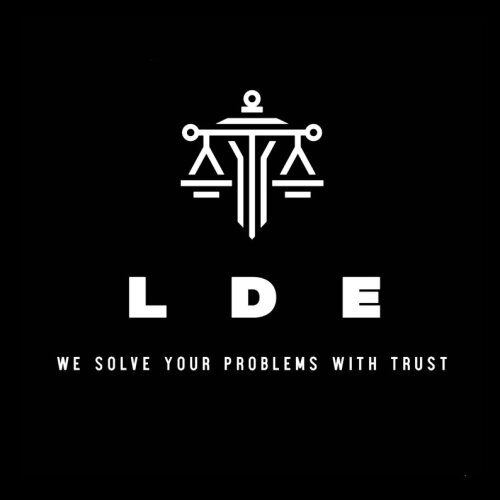Best Oil, Gas & Energy Lawyers in Lahore
Share your needs with us, get contacted by law firms.
Free. Takes 2 min.
List of the best lawyers in Lahore, Pakistan
About Oil, Gas & Energy Law in Lahore, Pakistan
Lahore, a bustling city and the capital of the Punjab province in Pakistan, is a significant hub for the country's oil, gas, and energy sectors. While the majority of Pakistan's oil and gas reserves are located in regions like Sindh and Balochistan, Lahore plays a crucial role in policy-making, distribution, and consumption due to its strategic location and economic influence. The energy sector in Lahore is influenced by both provincial and federal regulations that aim to promote sustainable development while managing resources efficiently. Understanding the legal landscape of this sector is essential for stakeholders involved in exploration, production, and distribution of energy resources.
Why You May Need a Lawyer
Legal assistance can be pivotal in several scenarios related to oil, gas, and energy in Lahore:
- Contracts and Agreements: Crafting and reviewing contracts with oil and gas exploration companies can be complex, requiring legal expertise to ensure compliance and protect interests.
- Land Acquisition and Disputes: Access to resources often involves navigating land acquisition laws and resolving disputes between landowners and energy companies.
- Environmental Compliance: Ensuring compliance with environmental regulations is crucial for energy companies to avoid penalties and promote sustainable practices.
- Licensing and Permits: Acquiring the necessary licenses and permits for exploring and producing energy resources can be a complex legal process.
- Dispute Resolution: Legal support may be needed in resolving disputes between parties in oil, gas, and energy transactions.
Local Laws Overview
The oil, gas, and energy sectors in Lahore are governed by a combination of federal laws and local regulations. Key aspects include:
- Petroleum Exploration and Production Policy: Governs the licensing and contracting processes for exploration and extraction of petroleum resources.
- Oil and Gas Regulatory Authority (OGRA): Regulates downstream petroleum activities, ensuring fair practices and protection for consumers.
- Environmental Protection Act: Provides the framework for environmental management and conservation in energy projects.
- Provincial Regulations: Punjab-specific regulations that may affect energy projects, particularly in land use and zoning matters.
Frequently Asked Questions
What is the main regulatory body for the energy sector in Pakistan?
The main regulatory body for the energy sector is the Oil and Gas Regulatory Authority (OGRA), which oversees petroleum and natural gas activities in Pakistan.
How can I obtain an exploration license in Pakistan?
To obtain an exploration license, companies must comply with the Petroleum Exploration and Production Policy and submit an application to the Directorate General of Petroleum Concessions (DGPC).
What are the environmental requirements for energy projects?
Energy projects must comply with the Environmental Protection Act, which mandates Environmental Impact Assessments (EIAs) and adherence to environmental standards.
Can foreign companies invest in Pakistan's energy sector?
Yes, foreign companies can invest in Pakistan's energy sector, but they must adhere to national investment policies and regulations specific to the energy sector.
What is a Production Sharing Agreement (PSA)?
A Production Sharing Agreement is a contract between the government and a resource extraction company, outlining the distribution of resources once production begins.
How are energy disputes resolved in Lahore?
Energy disputes can be resolved through negotiation, mediation, arbitration, or litigation, depending on the nature of the dispute and the contractual agreements in place.
What role does the Punjab government play in the energy sector?
The Punjab government plays a role in facilitating energy projects, enforcing provincial regulations, and ensuring compliance with environmental and land-use laws.
How can landowners protect their rights in energy projects?
Landowners can protect their rights by engaging legal counsel to review contracts, ensuring fair compensation and adherence to legal obligations by energy companies.
What is the process for obtaining permits for renewable energy projects?
Permits for renewable energy projects involve compliance with provincial and federal regulations, applications to relevant authorities, and obtaining necessary environmental clearances.
Are there incentives for renewable energy investments in Pakistan?
Yes, Pakistan offers various incentives for renewable energy investments, including tax exemptions, subsidies, and support for infrastructure development.
Additional Resources
For individuals seeking further information or assistance, the following resources may be helpful:
- Oil and Gas Regulatory Authority (OGRA): Offers guidelines and information on energy regulations.
- Directorate General of Petroleum Concessions (DGPC): Handles petroleum licensing and concessions.
- Punjab Energy Department: Provides information on provincial energy policies and projects.
- Environmental Protection Agency (EPA): Offers guidance on environmental standards for energy projects.
- Legal Professional Associations: Law societies and bar associations in Lahore provide directories of specialized lawyers.
Next Steps
If you find yourself in need of legal advice in the oil, gas, and energy sectors in Lahore, consider the following steps:
- Research and Identify Needs: Clearly outline your legal needs and gather relevant documents and information pertaining to your case.
- Consult a Specialist: Seek a legal expert with experience in oil, gas, and energy law to guide you through the process effectively.
- Attend an Initial Consultation: Use this opportunity to understand your legal position, options, and strategies moving forward.
- Evaluate Your Options: Consider the advice provided and discuss potential solutions or steps with your lawyer.
- Engage Legal Representation: If necessary, retain a lawyer to represent your interests and assist with negotiations, compliance, or litigation as needed.
Lawzana helps you find the best lawyers and law firms in Lahore through a curated and pre-screened list of qualified legal professionals. Our platform offers rankings and detailed profiles of attorneys and law firms, allowing you to compare based on practice areas, including Oil, Gas & Energy, experience, and client feedback.
Each profile includes a description of the firm's areas of practice, client reviews, team members and partners, year of establishment, spoken languages, office locations, contact information, social media presence, and any published articles or resources. Most firms on our platform speak English and are experienced in both local and international legal matters.
Get a quote from top-rated law firms in Lahore, Pakistan — quickly, securely, and without unnecessary hassle.
Disclaimer:
The information provided on this page is for general informational purposes only and does not constitute legal advice. While we strive to ensure the accuracy and relevance of the content, legal information may change over time, and interpretations of the law can vary. You should always consult with a qualified legal professional for advice specific to your situation.
We disclaim all liability for actions taken or not taken based on the content of this page. If you believe any information is incorrect or outdated, please contact us, and we will review and update it where appropriate.

















